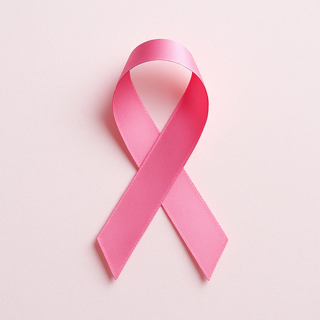
Breast cancer is the most common cancer among women in the United States. But not every woman has the same risk of developing it. Several factors — some within your control, others not — can raise or lower your chances.
In this article, I’ll walk you through the key breast cancer risk factors, the role of lifestyle, and what you need to know about mammograms and screening.
What Increases the Risk of Breast Cancer?
Some risk factors can’t be changed. Others are linked to daily habits and can be improved. Having risk factors doesn’t mean you will get cancer, but it does mean it’s worth being more proactive about your health.
Unchangeable Risk Factors:
- Age: Risk increases with age, especially after 50.
- Sex: Breast cancer is much more common in women, but men can also be affected.
- Family history: Having a mother, sister, or daughter with breast cancer increases your risk.
- Genetic mutations: Women with BRCA1 or BRCA2 gene mutations have a much higher lifetime risk.
- Personal history: If you’ve had breast cancer before, your risk is higher for the other breast.
- Early menstruation or late menopause: More lifetime estrogen exposure raises risk.
- Dense breast tissue: Seen on a mammogram, this makes screening harder and slightly raises cancer risk.
Modifiable Risk Factors:
- Obesity, especially after menopause.
- Physical inactivity.
- Alcohol: Risk increases from as little as 3 drinks per week.
- Smoking: Linked to higher risk, especially in younger women.
- Long-term hormone replacement therapy (HRT): Especially combinations of estrogen and progesterone.
Other Relevant Factors:
- Being tall (over 175 cm / 5’9”) is associated with higher risk.
- Pregnancy and breastfeeding: Having children younger and breastfeeding longer may reduce risk.
- Radiation exposure to the chest during youth increases long-term risk.
- Night shift work may affect hormone balance and increase risk.
- Environmental chemicals like phthalates and pesticides are under study, but no clear link has been proven.
Lifestyle, Diet & Breast Cancer
Your daily habits matter — here’s what research says:
- Exercise protects against breast cancer at all ages.
- A Mediterranean diet (rich in vegetables, fruits, olive oil, and fish) may reduce risk.
- Limit red and processed meat for additional protection.
- Keep vitamin D and calcium levels healthy, especially before menopause.
- Soy foods are safe and may be mildly protective.
- Caffeine is not linked to increased breast cancer risk.
When Should You Get a Mammogram?
Mammograms detect breast cancer early, before symptoms appear — when treatment is more effective and survival rates are higher.
When to Start:
- Women at average risk should talk to their doctor about starting at age 40.
- Women at high risk (e.g., BRCA mutation, strong family history) may start earlier and may also need MRI.
How Often:
- Most guidelines recommend every 2 years, though some suggest annual screening depending on your risk and preferences.
When to Stop:
- Continue if you’re in good health and have a life expectancy of 10+ years.
- Screening may not be helpful for those with serious illnesses that limit lifespan.
What If Your Mammogram Shows Something?
About 1 in 10 mammograms leads to follow-up imaging. Most of these findings are not cancer, but additional tests help confirm this.
If a lump is found or if something unusual shows up, your doctor may order:
- More detailed mammogram images
- An ultrasound
- Sometimes a biopsy (to analyze tissue)
Even if your mammogram is normal, always report new lumps or changes in your breasts.
Should You Do Breast Self-Exams?
Monthly self-exams are no longer recommended as a screening method. They haven’t been shown to lower death rates and often lead to unnecessary tests.
Instead, practice breast self-awareness:
- Know what’s normal for your breasts
- Report changes (like lumps, skin changes, nipple discharge) to your provider
How to Lower Your Risk of Breast Cancer
Even if some risks are out of your control, you can make changes that protect your health:
- Quit smoking
- Limit or avoid alcohol
- Stay active
- Eat a healthy, balanced diet
- Maintain a healthy weight
- Discuss HRT risks with your doctor
- Keep up with regular mammograms
In higher-risk cases, medications or preventive surgery may be discussed with your healthcare provider.
Talk to Your Doctor
Every woman is different. Understanding your personal risk and options for screening is essential. Don’t rely on online risk calculators alone — talk to a doctor who knows your history.

